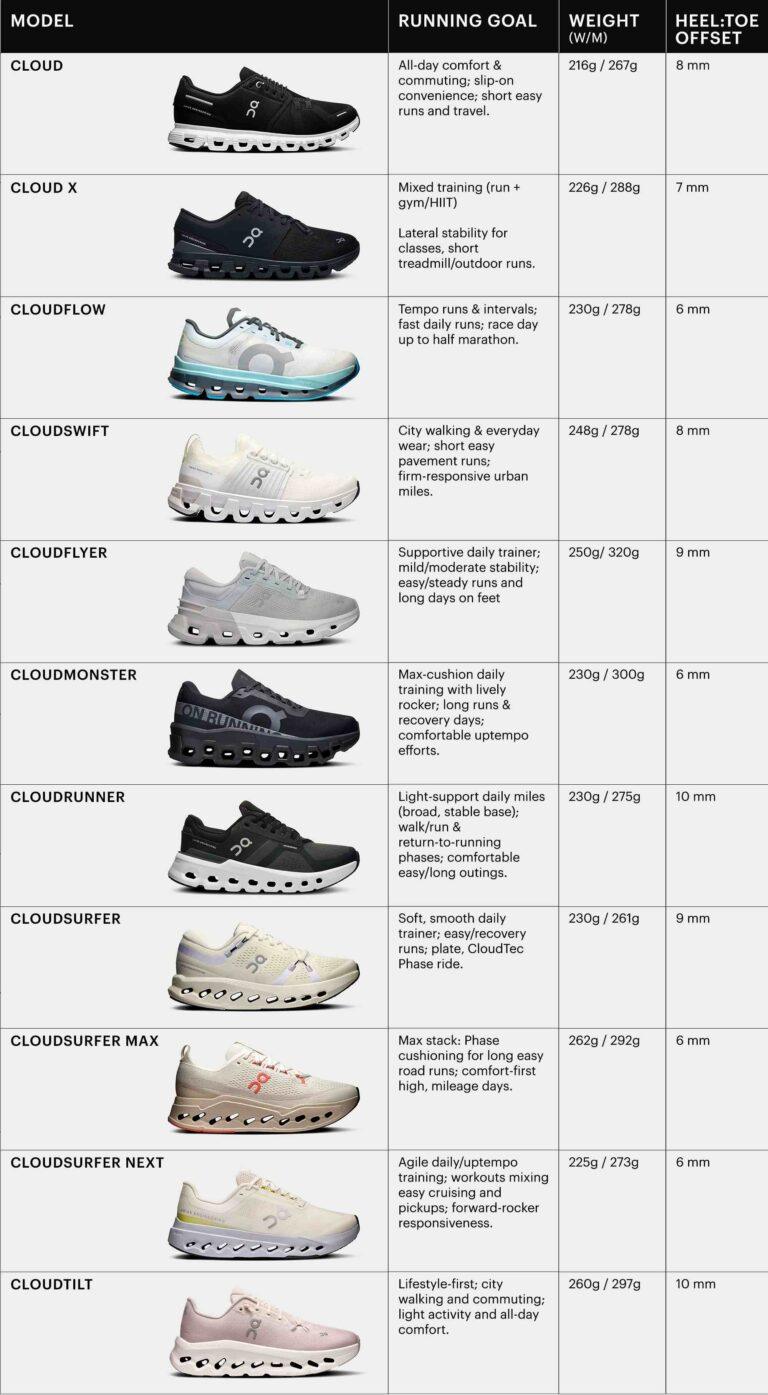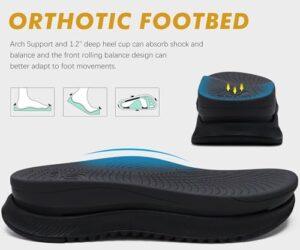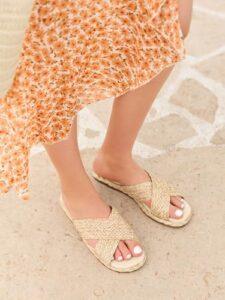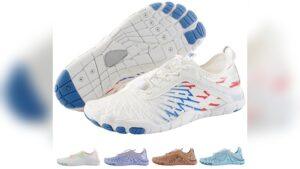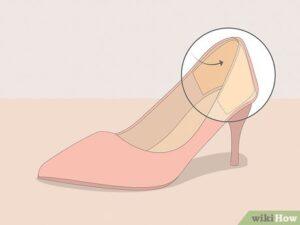Have you ever wondered how much a pair of sneakers really weighs? Whether you’re an athlete, a casual walker, or just curious, knowing the weight of your sneakers can change the way you choose and use them.
The right weight affects your comfort, speed, and even how long your feet stay fresh. Keep reading, and you’ll discover surprising facts that could help you pick the perfect pair for your needs. Your feet—and your performance—might thank you.
Average Weight Of Sneakers
The average weightof a pair of sneakers is about 1.5 to 2.5 pounds. Smaller sizes usually weigh less, while larger sizes weigh more. For example, kids’ sneakers can weigh as little as 1 pound. Adult sneakers often weigh around 2 pounds or more.
Different sneaker types also affect weight. Running shoes tend to be lighter, often under 2 pounds, to help with speed. Basketball shoes are heavier, sometimes over 3 pounds, for extra support. Casual sneakers fall somewhere in between, balancing comfort and weight.
| Sneaker Type | Typical Weight (per pair) |
|---|---|
| Kids’ Sneakers | 1 – 1.5 pounds |
| Running Shoes | 1.5 – 2 pounds |
| Casual Sneakers | 1.8 – 2.5 pounds |
| Basketball Shoes | 2.5 – 3.5 pounds |
Materials Affecting Sneaker Weight
Lightweight fabrics and meshmake sneakers easier to wear. These materials allow air to flow, keeping feet cool. They also reduce the overall weightof the shoe. Sneakers with mesh tops weigh less than those with leather or heavy cloth.
The sole and cushioningadd to sneaker weight. Thick soles with many layers can be heavy. Softer cushioning helps comfort but may increase weight. Some soles use light foam to keep shoes light but still soft.
Extra features like zippers, straps, or decorations add weight too. Small metal parts are heavier than plastic ones. Simple designs without many parts usually weigh less. Every detail counts when making a sneaker light.
Weight Comparison With Other Footwear
Sneakersusually weigh between 1.5 to 2.5 poundsper pair. Running shoesare lighter, often around 1 to 2 pounds. This helps runners move faster and feel less tired.
Bootsare much heavier. They can weigh 3 to 5 poundsor more per pair. Boots have thick soles and strong materials for protection.
Casual shoesfall between sneakers and boots. They often weigh around 2 to 3 pounds. These shoes focus on comfort and style.
| Footwear Type | Average Weight (per pair) |
|---|---|
| Sneakers | 1.5 – 2.5 pounds |
| Running Shoes | 1 – 2 pounds |
| Boots | 3 – 5+ pounds |
| Casual Shoes | 2 – 3 pounds |

Credit: www.runnersworld.com
How Weight Influences Performance
Lightweight sneakershelp athletes move faster and with less effort. They reduce the energy neededto lift feet during running or sports. This can improve speedand agility.
Heavier shoes might cause more tirednessafter long use. They can make legs feel heavier and slower. This affects comfortand performancenegatively.
Comfort is key for better results. Sneakers that weigh less often feel better on feet. They reduce fatigueand help athletes keep going longer.
Tips To Choose Lightweight Sneakers
Materialsplay a big role in sneaker weight. Sneakers made with meshor knit fabricare very light. Foam solesare lighter than rubber soles. Avoid heavy leather or thick materials. Look for shoes with breathable uppersto keep feet cool and reduce weight. Lightweight sneakers help you move faster and feel more comfortable.
Some brandsare known for making light sneakers. Brands like Adidas, Nike, and New Balanceoften use lightweight materials. Other brands like Asicsand Brooksalso focus on light and comfy designs. Choosing these brands can help you find shoes that weigh less but feel strong and supportive.

Credit: www.ebay.ca
Surprising Facts About Sneaker Weight
Lightweight sneakerscan weigh as little as 5 ouncesper shoe. These shoes are made with special materials like foam and mesh. They help runners move faster and feel less tired.
Some heavy sneakersweigh over 20 ounces. These shoes give more support and protection. They are good for sports like basketball or hiking. The extra weight helps absorb shock and protect feet.
| Type of Sneaker | Approximate Weight | Main Benefit |
|---|---|---|
| Record-Breaking Lightweight | 5-7 ounces | Speed and comfort |
| Heavy Sneakers | 20+ ounces | Support and protection |
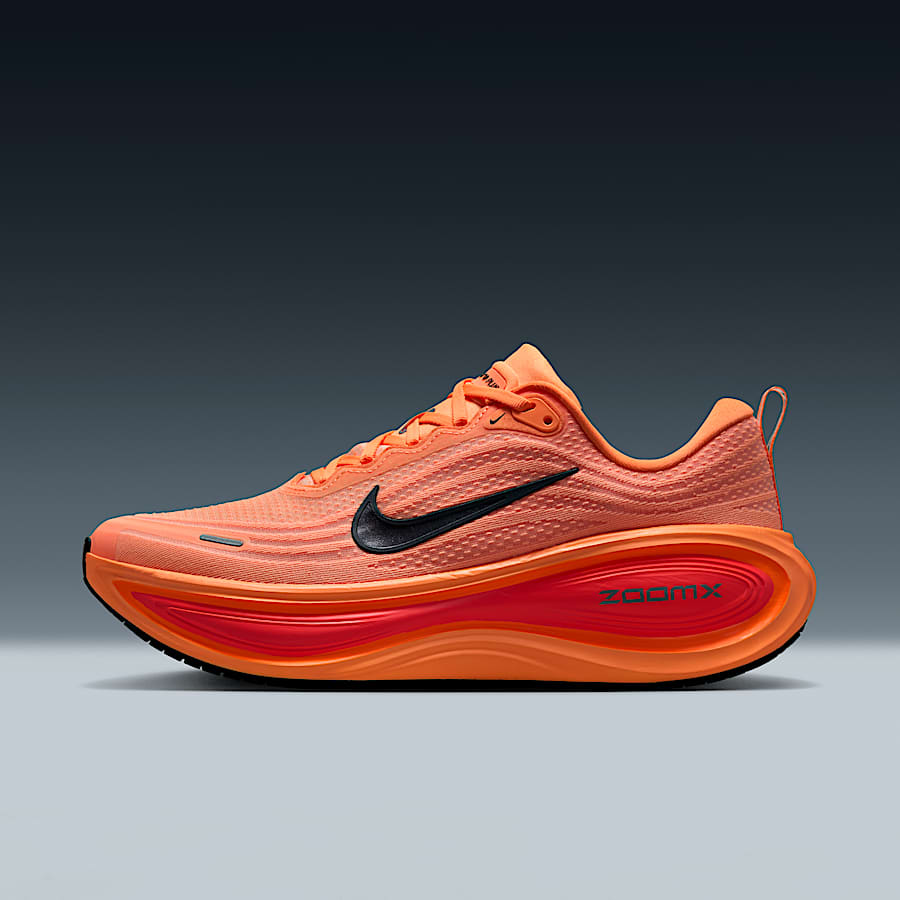
Credit: www.nike.com
Frequently Asked Questions
How Much Does An Average Pair Of Sneakers Weigh?
An average pair of sneakers typically weighs between 1. 5 to 2. 5 pounds (680 to 1134 grams). Weight varies based on materials, size, and design. Lightweight models can be under 1. 5 pounds, while heavier, durable sneakers may exceed 2.
5 pounds.
What Factors Affect Sneaker Weight The Most?
Sneaker weight depends mainly on materials, size, sole thickness, and added features. Lightweight materials like mesh reduce weight. Larger sizes and thick soles increase weight. Additional cushioning or support also adds to overall weight.
Do Running Sneakers Weigh Less Than Casual Sneakers?
Yes, running sneakers are usually lighter than casual sneakers. They use lightweight, breathable materials for speed and comfort. Casual sneakers often prioritize style and durability, making them heavier.
How Does Sneaker Weight Impact Athletic Performance?
Lighter sneakers improve speed, agility, and reduce fatigue during exercise. Heavy sneakers can slow movements and cause quicker tiredness. Athletes often choose shoes based on the balance between weight and support.
Conclusion
Sneakers come in many shapes and sizes, so their weight varies. Most pairs weigh between one and three pounds. Lighter sneakers help you run faster and feel more comfortable. Heavier ones often provide more support and durability. Knowing sneaker weight helps you choose the right pair for your needs.
Think about what matters most: speed, comfort, or support. This way, you find sneakers that suit your lifestyle perfectly. Weight is just one factor but an important one. Keep it in mind when buying your next pair.

Madison Clark is a footwear expert and the voice behind MyStyleGrid.com. She specializes in honest shoe reviews, style tips, and practical guides to help readers find the perfect pair for any occasion. With years of experience in blogging and content creation, Madison makes footwear knowledge simple, stylish, and easy to follow.

